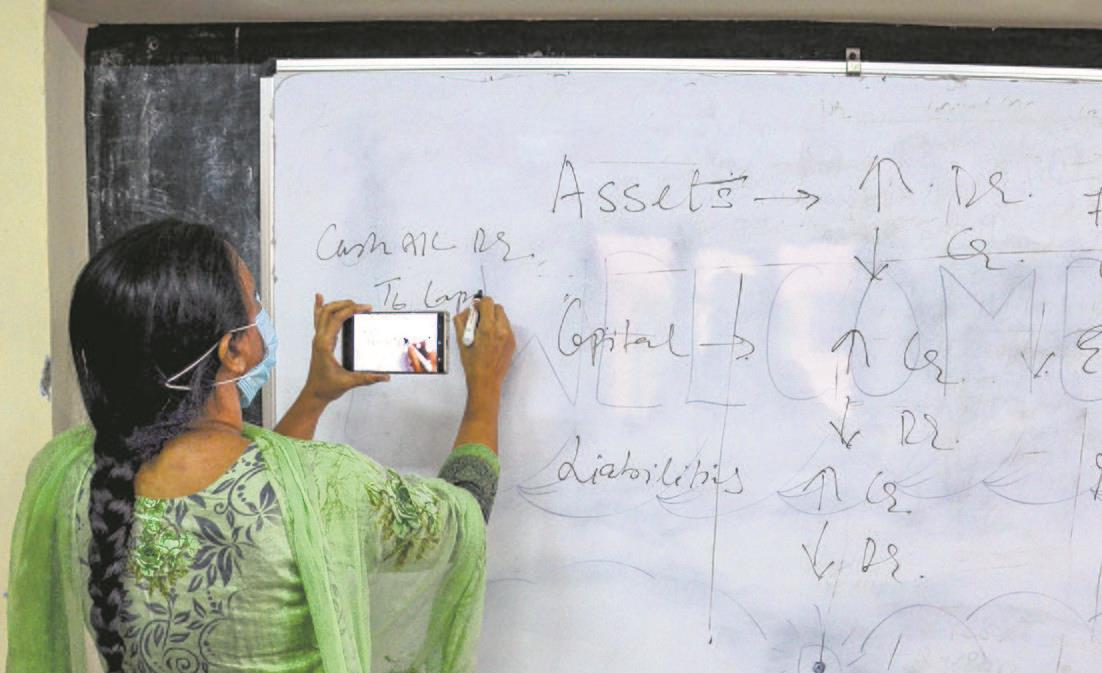
A teacher makes a video for online teaching at a school. file
New Delhi, November 21
Educational disruption due to prolonged closure of schools across the globe will not only have alarming effects on learning loss, but also poses threat to gender equality, a new study by UNESCO has pointed out.
1.6 bn students hit
At the peak of the Covid-19 pandemic, 1.6 billion students in 190 countries were affected by school closures — Stefania Giannini, UNESCO Official
The global study titled “When schools shut: Gendered impacts of Covid-19 school closures” brings to the fore that girls and boys, young women and men were affected differently by school closures, depending on the context.
“At the peak of the Covid-19 pandemic, 1.6 billion students in 190 countries were affected by school closures. Not only did they lose access to education, but also to the myriad benefits of attending school, at an unparalleled scale,” said Stefania Giannini, UNESCO, Assistant Director-General for Education.
“Educational disruption of this extent has alarming effects on learning loss and school dropout. Beyond this, it poses threats to gender equality, including effects on health, well being and protection that are gender specific,” Giannini said. Drawing on evidence from 90 countries and in-depth data collected in local communities, the report shows that gender norms and expectations can affect the ability to participate in and benefit from remote learning.
“In poorer contexts, girls’ time to learn was constrained by increased household chores. Boys’ participation in learning was limited by income-generating activities. Girls faced difficulties in engaging in digital remote learning modalities in many contexts because of limited access to internet-enabled devices, a lack of digital skills and cultural norms restricting their use of technological devices,” the report said.
The study pointed out that digital gender-divide was already a concern before the Covid-19 crisis. “The in-depth studies on Bangladesh and Pakistan in the global report revealed its gendered effects on remote learning during school closures. In the study on Pakistan, only 44 per cent of girls in participating districts reported owning mobile phones for their personal use, whereas 93 per cent of boys did so. Girls who did not own mobile phones reported that they relied on their relatives’ devices, typically those belonging to their fathers,” it said.
“While some of the girls were able to use family members’ phones, they were not always able to do so. Their access was restricted since some parents were concerned that providing girls with access to smartphones would lead to misuse and could result into romantic relationships. From April to September 2020, the share of girls reporting that they did not study at all increased from 1 to 10 per cent,” it added. — PTI
Join Whatsapp Channel of The Tribune for latest updates.



























